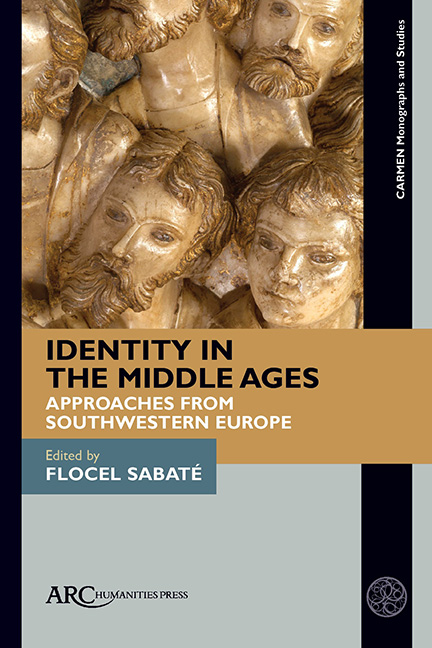Book contents
Chapter 13 - Identity and the Rural Parish in Medieval Iberia
Published online by Cambridge University Press: 20 January 2022
Summary
The purpose ofthis study is to contribute to the understanding of the role of Christianity in the creation of identity in medieval Western society through an examination of the part played by parishes in the formation of local rural communities.
Today the topic of identities is being widely explored on the basis of assumptions underlying cultural history. Myriad studies exist on the role of language and identity, social groups and identity, the function of identity in urban contexts, of ideologies, of teaching, the construction of political identities, the relationship between identity and conflict, as well as the whole symbolic sphere, and political and territorial configurations, among many more.
The religious element was undoubtedly a powerful identifying factor in Western medieval society, especially from the eleventh century onwards; one might argue that it was in fact the most important defining element, even more so than territory, for instance. During the Middle Ages, the Christian faith was not restricted to the realm of belief; it was at the core of Western civilization and the Latin world; it permeated social, mental, and everyday life and provided a theocentric vision of the world, of society, and of mankind. Of course, this does not deny that rural life was framed by Christian references before the Middle Ages.
The focus of this study (on the role of Christianity and parishes in the configuration of local identities) is a district over a hundred kilometres (sixty-five miles) broad, comprising 11,500 square kilometres of rural Castile, the so-called Campo de Calatrava, a lordship of the Calatrava Military Order in the south of the Castilian plateau, located in the Guadiana river basin, between the Toledo Mountains and the Sierra Morena, an area which today mainly forms part of the province of Ciudad Real. At its centre was the Villa Real or Ciudad Real crown property. The military order itself was actually created here in 1158. Thirty-nine parish churches, which our sources call great churches (iglesias mayores), are documented here for thirty-three rural and semi-rural villages with an agricultural population of fewer than a thousand people. The map shows the location of the most important population centres.
- Type
- Chapter
- Information
- Identity in the Middle AgesApproaches from Southwestern Europe, pp. 275 - 292Publisher: Amsterdam University PressPrint publication year: 2021



